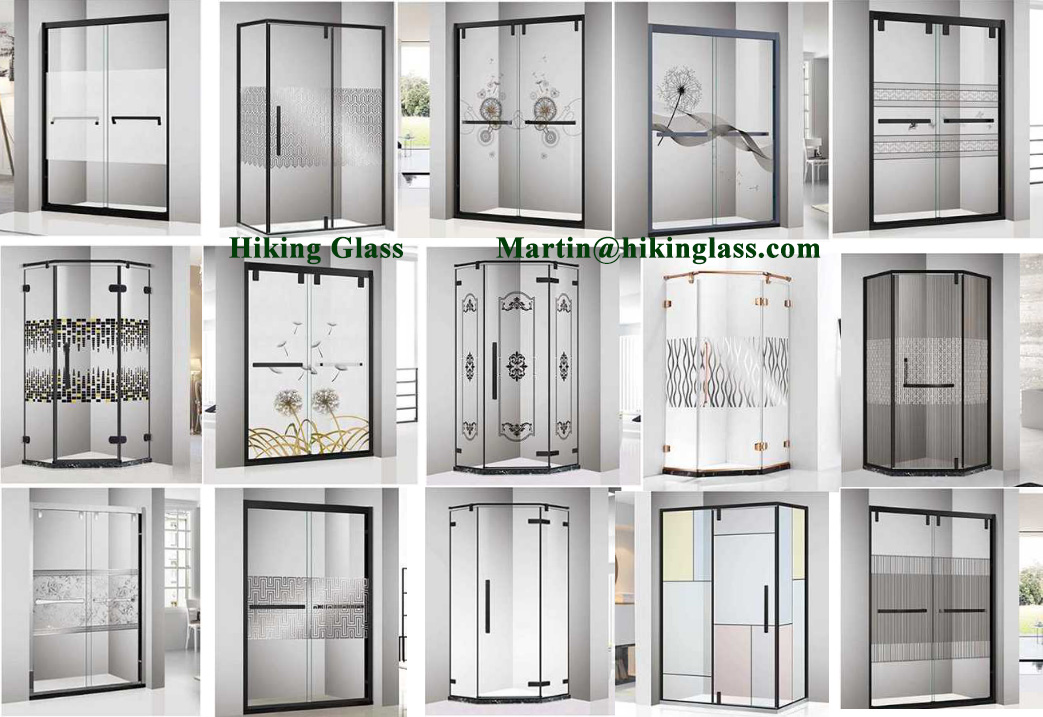Pros and Cons of Frameless Shower Doors
frameless shower doors are a hallmark of modern bathroom design, known for their sleek, minimalist aesthetic and functional advantages. They are made of thick tempered glass and lack the metal framing found in traditional shower doors, which contributes to their unique look and appeal. However, as with any home improvement choice, frameless shower doors come with their own set of pros and cons. This comprehensive guide explores the advantages and disadvantages of frameless shower doors to help you decide if they are the right choice for your bathroom.

Pros of Frameless Shower Doors
1. Aesthetic Appeal
Frameless shower doors are widely celebrated for their elegant and contemporary appearance. The absence of metal framing allows for a seamless look that can make any bathroom feel more open and spacious. This sleek design can enhance the overall aesthetic of your bathroom, giving it a clean, modern feel that is highly sought after in today’s interior design trends.
2. Versatility
One of the significant advantages of frameless shower doors is their versatility. They can be customized to fit virtually any shower space, regardless of size or shape. This flexibility allows homeowners to incorporate unique design elements and layouts, such as corner showers or expansive walk-in showers, that might not be feasible with traditional framed doors.
3. Easy Maintenance
Frameless shower doors are easier to clean compared to their framed counterparts. Without the metal frame, there are fewer crevices where water and soap scum can accumulate, reducing the likelihood of mold and mildew growth. Additionally, the smooth glass surface can be wiped down quickly and efficiently, making maintenance a breeze.
4. Durability
Constructed from thicker glass, typically 3/8 to 1/2 inch, frameless shower doors are highly durable and resistant to shattering. This thickness provides the necessary stability and strength, ensuring that the doors can withstand daily use without the support of a frame. The tempered glass used in these doors is also designed to break into small, less harmful pieces in the rare event that it does shatter, enhancing safety.
5. Enhanced Light Flow
The transparency of frameless shower doors allows more light to pass through, brightening the entire bathroom. This can create the illusion of a larger space and contribute to a more inviting and pleasant atmosphere. Enhanced light flow is particularly beneficial in smaller bathrooms where natural light may be limited.
6. Increased Property Value
Investing in frameless shower doors can increase the value of your home. Potential buyers often view modern, updated bathrooms as a significant selling point, and the presence of high-quality, frameless shower doors can make your property more attractive on the market.
Cons of Frameless Shower Doors
1. Higher Cost
One of the primary drawbacks of frameless shower doors is their cost. They are typically more expensive than framed shower doors due to the thicker glass and the precision required for installation. The customization options and the high-end look they provide come at a premium, which may not fit every homeowner’s budget.
2. Complex Installation
Installing frameless shower doors is more complex and time-consuming compared to framed doors. Precise measurements and skilled labor are essential to ensure a proper fit and to prevent leaks. This often means hiring professional installers, which can add to the overall cost. DIY installation is generally not recommended unless you have experience with this type of work.
3. Water Leakage
Frameless shower doors rely on precise installation and high-quality seals to prevent water from leaking out of the shower area. Unlike framed doors, which have more built-in barriers to contain water, frameless doors are more susceptible to leaks if not installed correctly. Regular maintenance of the seals and proper installation are crucial to avoid this issue.
4. Less Structural Support
Without a frame, frameless shower doors lack the additional support that framed doors provide. While the thicker glass compensates for this to a large extent, it still means that the doors can be more prone to slight movements or misalignment over time. This can be particularly noticeable in larger doors or enclosures.
5. Potential for Breakage
Although frameless shower doors are made from tempered glass, which is much stronger than regular glass, they are not completely shatterproof. Sharp impacts or improper installation can still lead to breakage. While the safety glass reduces the risk of injury, the potential for breakage remains a concern, especially in households with children.
6. Weight Considerations
The thicker glass used in frameless shower doors is significantly heavier than the glass in framed doors. This additional weight requires sturdy hardware and solid structural support in the bathroom. In some cases, reinforcing the shower walls may be necessary to accommodate the weight, adding to the complexity and cost of installation.
Conclusion
Frameless shower doors offer a range of benefits, from their modern aesthetic appeal and easy maintenance to their durability and ability to increase property value. However, they also come with certain disadvantages, including higher costs, complex installation, and potential issues with water leakage and structural support.
When deciding whether to install frameless shower doors in your bathroom, it is essential to weigh these pros and cons carefully. Consider your budget, the specific requirements of your bathroom space, and your long-term maintenance preferences. By evaluating these factors, you can make an informed decision that enhances both the functionality and beauty of your bathroom.





